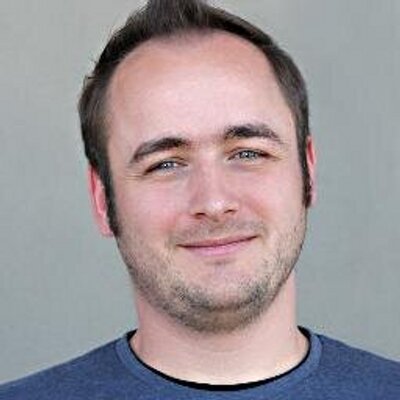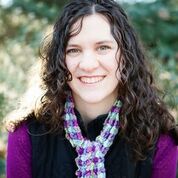Uganda
See the following -
'Open.Michigan' Translation Project: Case Study On Health Education For Uganda
Back in January, we launched our translation pilot for Open.Michigan, focusing on two video series for health education. We are thrilled to report that the translation activities are still going strong—57 volunteers to date, 53 videos that include 128 completed translations covering 11 languages, and expansion into our family medicine video series. We are amazed at the skill and dedication of our volunteer translators. Read More »
- Login to post comments
'Virtual Doctors' Helping Patients in Zambia
The idea of a "virtual doctor" project might sound rather futuristic. But the inspiration for this scheme to improve health services in Zambia began in very low-tech and unhappy circumstances. Huw Jones, working in Zambia as a safari guide, was driving a Land Rover along a road in a remote part of the country. He saw a trail of blood in the road, and his first reaction was that it might have come from an animal killed by a lion. But he came across a couple on a bike - the man riding and the woman carried on the handlebars. She was pregnant and bleeding heavily and they had been cycling for hours with the aim of reaching the nearest hospital, almost 60 miles away...
- Login to post comments
A Ugandan mHealth Moratorium Is a Good Thing
Kampala is comfortable, with mild weather, good infrastructure (Umeme Electricity Co. notwithstanding), and more than its share of international-style restaurants for all those expatriate aid workers. Read More »
- Login to post comments
Africa Innovations: 15 Ideas Helping To Transform A Continent
A mobile phone database for dairy farmers and a strain of sweet potato that can help fight child blindness. These are just two of the imaginative new ideas that are tackling Africa's old problems Read More »
- Login to post comments
Africa's Mineral Wealth Hardly Denting Poverty Levels, Says World Bank
Report finds discovery of oil and mineral resources doing little to improve prospects for poor people, whose lot may even worsen Read More »
- Login to post comments
Application Deadline to Host OpenMRS 2018 Annual Implementers Meet Coming Up
 The deadline to apply to host the 2018 International OpenMRS Implementers conference is coming up on April 30 [updated]. Nations that want to host the meeting need to answer the detailed questionnaire by that time. For those Open Health News readers who have missed one of the greatest health IT stories of the decade, the Government of Uganda hosted the 2016 OpenMRS meeting in their capital city of Kampala. The conference was such an extraordinary success that a large number of other national governments volunteered to host the 2017 Implementer's conference. There are currently close to 40 countries around the world where OpenMRS is being implemented throughout the county in large-scale deployments.
The deadline to apply to host the 2018 International OpenMRS Implementers conference is coming up on April 30 [updated]. Nations that want to host the meeting need to answer the detailed questionnaire by that time. For those Open Health News readers who have missed one of the greatest health IT stories of the decade, the Government of Uganda hosted the 2016 OpenMRS meeting in their capital city of Kampala. The conference was such an extraordinary success that a large number of other national governments volunteered to host the 2017 Implementer's conference. There are currently close to 40 countries around the world where OpenMRS is being implemented throughout the county in large-scale deployments.
- The Future Is Open
- Login to post comments
Apps: The Afro Revolution
Five mobile apps that are putting key information into the hands of ordinary Africans Read More »
- Login to post comments
Bridges and Roads as Important to Public Health as Medicines - Lessons from Major Disasters
 Two seemingly unrelated national policy debates are afoot, and we can’t adequately address one unless we address the other. Health care reform has been the hottest topic. What to do about America’s aging infrastructure has been less animated but may be more pressing. Yet even as cracks in America’s health system and infrastructure expand, political divides between parties and within parties have stalled efforts to develop policies and implement solutions. Problematically, debates over health care reform and infrastructure projects remain separate...
Two seemingly unrelated national policy debates are afoot, and we can’t adequately address one unless we address the other. Health care reform has been the hottest topic. What to do about America’s aging infrastructure has been less animated but may be more pressing. Yet even as cracks in America’s health system and infrastructure expand, political divides between parties and within parties have stalled efforts to develop policies and implement solutions. Problematically, debates over health care reform and infrastructure projects remain separate...
- Login to post comments
Can Africa’s Mobile Phones And Maps Usher In A Governance Revolution?
For crime victims in the Kenyan town of Lamet Umoja, where before there was silence, now there is Twitter. Read More »
- Login to post comments
Commence - Mapping Financial Services Training
The Mapping Financial Inclusion in Uganda project is truly underway as we enter our second week of training in Mbale, Uganda. HOT is currently at the Uganda Christian University (UCU) introducing 30 local students to various open source tools with the assistance of students from Makerere University. There will be two days of training before we head out into the field on Wednesday to start mapping the district of Mbale.
In collaboration with the Financial Sector Deepening (FSD) agency, HOT held a three day training course last week with 14 students from the Makerere University in Kampala covering several topics including OpenStreetMap (OSM), JOSM, OpenMapKit (OMK), OSMTracker and Field Papers...
- Login to post comments
Dedicated Engineering Team in South Africa Deploys Open Source Tools, Save Lives
 In 2006, a groundbreaking TED talk used statistics to reveal surprising insights about the developing world, including how many people in South Africa have HIV despite free and available anti-retroviral drugs. Gustav Praekelt, founder of Praekelt.org, heard this TED talk and began tenaciously calling a local hospital to convince them to start an SMS program that would promote anti-retrovirals. The program that resulted from those calls became txtAlert—a successful and widely recognized mobile health program that dramatically improves medical appointment adherence and creates a free channel for patients to communicate with the hospital...
In 2006, a groundbreaking TED talk used statistics to reveal surprising insights about the developing world, including how many people in South Africa have HIV despite free and available anti-retroviral drugs. Gustav Praekelt, founder of Praekelt.org, heard this TED talk and began tenaciously calling a local hospital to convince them to start an SMS program that would promote anti-retrovirals. The program that resulted from those calls became txtAlert—a successful and widely recognized mobile health program that dramatically improves medical appointment adherence and creates a free channel for patients to communicate with the hospital...
- Login to post comments
Developing Nations Improving Health Communication Through the Use of DHIS2 (Part 1)
 DHIS2 implementations are spreading steadily among national health services in developing countries as well as among international non-governmental organizations (NGOs) working to improving health in the developing world through the use of health information technology. As an open source solution, DHIS2 offers developing countries the advantage of adopting a cost-effective and flexible solution for aggregate statistical data collection, validation, analysis, management, and presentation as well as for data sharing between healthcare professionals and facilities. Organizations and individuals who work with humanitarian software solutions will need to know what DHIS2 is, how it works, and how it might be implemented by national health services and other health-related projects across the globe...
DHIS2 implementations are spreading steadily among national health services in developing countries as well as among international non-governmental organizations (NGOs) working to improving health in the developing world through the use of health information technology. As an open source solution, DHIS2 offers developing countries the advantage of adopting a cost-effective and flexible solution for aggregate statistical data collection, validation, analysis, management, and presentation as well as for data sharing between healthcare professionals and facilities. Organizations and individuals who work with humanitarian software solutions will need to know what DHIS2 is, how it works, and how it might be implemented by national health services and other health-related projects across the globe...
- Login to post comments
District Health Information System 2 (DHIS2)
 District Health Information Software 2 (DHIS2) is a free and open source health management data platform used by multiple organizations, including the European Union (EU), and governments worldwide. It is currently being deployed in 54 countries. DHIS2 is a development project by the Health Information Systems Program (HISP) and is used for aggregate statistical data collection, validation, analysis, management, and presentation...
District Health Information Software 2 (DHIS2) is a free and open source health management data platform used by multiple organizations, including the European Union (EU), and governments worldwide. It is currently being deployed in 54 countries. DHIS2 is a development project by the Health Information Systems Program (HISP) and is used for aggregate statistical data collection, validation, analysis, management, and presentation...
- Login to post comments
DIY Lab Technique to Revolutionise Training for Neuroscientists
 A team of international researchers have come up with an inexpensive way to self-manufacture lab equipment, which could revolutionise the way neuroscientists across the world are trained. In a study published in the open access journal PLOS Biology, Dr Tom Baden from Sussex Neuroscience and André Maia Chagas, from the University of Tübingen, have devised a new imaging and microscope system called “FlyPi”. The equipment needed for modern neuroscience experiments can cost tens or even hundreds of thousands of pounds, which often means only institutions in rich countries can undertake top-level research and scientific training...
A team of international researchers have come up with an inexpensive way to self-manufacture lab equipment, which could revolutionise the way neuroscientists across the world are trained. In a study published in the open access journal PLOS Biology, Dr Tom Baden from Sussex Neuroscience and André Maia Chagas, from the University of Tübingen, have devised a new imaging and microscope system called “FlyPi”. The equipment needed for modern neuroscience experiments can cost tens or even hundreds of thousands of pounds, which often means only institutions in rich countries can undertake top-level research and scientific training...
- Login to post comments
EIFL Starts An OA Project In Kenya, Tanzania And Uganda
“Open access: knowledge sharing and sustainable scholarly communication in Kenya, Tanzania and Uganda” is a new EIFL regional project funded by Spider, the Swedish Program for ICT in Developing Regions DSV, Department of Computer and System Sciences, Stockholm University. Read More »
- Login to post comments